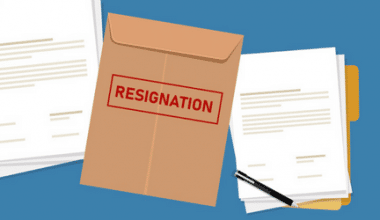The HR Coordinator is responsible for handling issues presented by current employees and new hires as well as organizing other HR department tasks. This role is examined in depth in this article. We look at the job description of the HR coordinator, as well as some interview questions for the role.
Who Is A HR Coordinator?
An HR Coordinator is in charge of overseeing all important HR functions and programs. This comprises concerns voiced by present and prospective employees, as well as issues concerning employment, wages and benefits, labor negotiations, and employee relations.
HR coordinators typically report to the HR director and are responsible for enhancing HR policies, processes, and practices as well as advocating changes to HR management.
Job Description for a HR Coordinator
The HR coordinator collaborates closely with the HR director or manager, as well as hiring managers, recruiters, and other HR staff, to ensure that the organization’s human resources policies, processes, and practices are as efficient and effective as possible.
To maximize efficiency and production, large (or very large) firms may employ a number of HR coordinators in various departments. There might be coordinators for recruiting, employee benefits, learning and development, and so on.
The following are some of the responsibilities of a Human Resources Coordinator.
#1. Onboarding and recruitment
Human resource coordinators assist and facilitate all important HR functions. Responsibilities in the recruiting and onboarding of new hires include:
- Assisting with candidate identification, selection, and interviewing
- Assisting with the administrative aspects of the new hire process (screening, contracts, and HR system updates).
- Helping employees with their pre-boarding and onboarding as needed, such as getting in touch with them, answering their queries, providing them pertinent material, and so on.
#2. Administrative duties
Administrative responsibilities account for a sizable portion of the HR coordinator’s workload. These are some examples:
- Administration and coordination in general
- Responding to all internal and external HR inquiries and requests
- Payroll administration assistance
- Updating and maintaining employee records (in an HRIS)
- Assisting with (and carrying out) the termination procedure
- Meetings, events, interviews, and so on.
#3. Performance Management
Another area where the HR coordinator can help is with performance management. This assistance entails the following responsibilities:
- Creating materials for the performance evaluation
- Supporting performance management processes
- Organizing performance evaluations
#4. Reporting and advising
A significant portion of the HR coordinator’s job entails attempting to improve existing processes. To accomplish so, the HR coordinator must conduct extensive research, data analysis, and reporting. This component of the job entails the following tasks:
- Auditing HR programs such as payroll, benefits, learning and development, and retirement
- Creating reports on general human resource activity
- Making suggestions for feasible actions to improve existing procedures
#5. Employee benefits
While the compensation and benefits manager is in charge of, what else is in a name, compensation and benefits, the HR coordinator frequently has certain ‘benefits-related’ obligations. Consider these:
- Being the go-to person for employees who have concerns or difficulties with their benefits.
- Serving as a contact between employees and insurance companies
- Employee health and wellbeing plans must be administered.
- Keeping track of benefit plans (healthcare, retirement, and so on).
- Benefits statements must be reconciled.
#6. IT and HR systems
Although the HRIS has already been described, a human resources coordinator works with a variety of (HR) systems and technology. Naturally, facilitating – and optimizing – human resource operations necessitates the use of software, which begins with understanding how to utilize it. As a result, some knowledge of HR technology is required, as is an interest in IT.
#7. The human resources director
The HR coordinator collaborates closely with the HR director – or management – to whom they report. What this comprises will vary depending on the organization, but subjects may include:
- Assisting the human resources director in educating employees and enforcing business policies
- Assisting the HR director with any specific (ad hoc) projects that arise.
- Reporting all HR activities to the HR director.
How to Get a Job as a HR Coordinator
A bachelor’s degree in Human Resources or a similar discipline, as well as 1 or 2 years of relevant experience in HR work, are often required for a position as a human resources coordinator.
Candidates with strong organizational skills and experience dealing with HR (payroll) software and HRIS databases, as well as administrator and coordinator expertise, are preferred.
Salary of a HR Coordinator
The average HR coordinator salary in the United States was $49,679, with a salary range of $41,699 to $60,285. Salary ranges can vary greatly depending on a variety of things, including schooling, certifications, supplementary talents, and the number of years you have worked in your field.
HR Coordinator Interview Questions
Interviewers will ask you general questions to ascertain your motivation for applying for this position and your qualities for success. During an HR coordinator interview, interviewers may ask the following general questions:
- Tell me a little more about yourself.
- Why did you apply for a human resources position?
- What piqued your interest in working for this organization?
- Do you see yourself working in human resources?
- Do you believe you’ll be successful in this role?
- What is your decision-making procedure?
- Which management style do you favor?
- How do you think your friends and family would describe you?
- What is your proudest professional accomplishment?
- Why did you decide to leave your prior job?
- What changes do you need to make in order to meet your objectives?
- Tell us about the corporate research you’ve done.
- Tell us what inspires you.
Questions about your background and experience
Interviewers ask questions about your background and experience to see whether you can handle the job’s day-to-day tasks. Examine the job description to choose the aspects you want to emphasize as to why you are the best applicant for this position.
A few interview questions on your HR experience and background include:
- Have you previously worked in human resources?
- How do your previous human resources internships qualify you for this position?
- How would this role assist you advance your career?
- What talents do you believe qualify you for this position?
- How have your previous experiences in various industries prepared you for this position?
- Describe your interactions with prior managers.
- How do you prioritize and arrange your workload?
- Which talents do you believe are essential for success in this role?
- Which human resources responsibilities are you most familiar with?
- Tell us about your leadership abilities and how you intend to put them to use.
In-depth Inquiries
The recruiting manager may ask you detailed questions to assess your understanding of human resource concepts. Investigate in-depth human resources questions and review your resume to determine how your abilities and work experience can provide appropriate solutions.
During your HR coordinator interview, an interviewer may ask you the following in-depth questions:
- How do you intend to resolve a problem with a department manager?
- Describe your approach to communicating secret information to executives.
- Discuss a time when you had to multitask. Tell us about the outcomes of your efforts.
- Tell us how you intend to respond if an employee asks you to assist them with a duty that is not specified in the job description.
- How do you assist a teammate who has made a mistake on a project?
- Describe a time when you were required to master new technology on the job.
- What steps would you take to update the company’s policies?
- How would you approach communicating updated firm information to employees?
- Discuss how you would approach an employee who needs to enhance their job performance.
- How do you handle a situation in which an employee seeks vacation time that is not in accordance with the company’s policies?
Sample Responses To HR Coordinator Interview Questions
Preparing for potential interview questions can give you greater confidence to provide relevant answers and increase your chances of being hired for the post.
Here are some sample questions and answers to prepare you for your interview with a human resources coordinator:
#1. What would you do if you made a mistake?
Employers ask this question to assess your problem-solving abilities. Describe a time when you had to correct a mistake you made and the impact it had on your team.
“If I make a mistake, I intend to handle it on my own unless it attracts the attention of my manager.” I’d tell my boss about my error right away, especially if it affected everyone in the department. In my previous position, I made a mistake during a presentation to the department about benefit changes. I apologized in front of the crew for my error, and they accepted my apology. I need to accept responsibility for my faults.”
#2. What would be your ideal working environment?
This question assists the employer in determining the corporate culture in which you wish to work. Discuss a great workplace experience to explain why you want to be a part of a specific work environment.
“I want to work in a team-oriented environment where everyone can showcase and develop their skills in order to achieve the organization’s goals,” for example. The information on your company’s website inspired me to apply for this position because of the emphasis on professional development as well as the collaboration of personnel from all divisions. I believe that a work atmosphere with a tightly knit team is critical to my performance and the success of my coworkers.”
#3. Discuss a time when you had to work under pressure.
Answering this question efficiently demonstrates to employers your commitment to producing high-quality results. Describe a case in which a former manager imposed strict deadlines on you and how you met them. Make careful to detail the outcomes of the deadlines you reached in order to demonstrate how they might be transferred to your prospective job.
“During my human resources internship, my manager assigned me the task of creating an internship orientation packet by the end of the week while also preparing a presentation for the following day.” I examined the internship paperwork to see how much time I would need to complete it. After determining that finishing the packet would take a few days, I completed the presentation first before finishing the packet. I ended up doing both assignments ahead of my manager’s deadline. Looking at the scope of numerous assignments allows me to make critical decisions about which task is the most important.”
#4. How would you handle a disagreement with another employee?
Because problem-solving is a necessary ability for success in human resources, the interviewer may ask you many questions about it. Refer to previous employment to assist you outline and elaborate on how you addressed a problem with an employee.
“The key to resolving conflict is asking questions, listening, and taking notes on key points they make,” for example. In my former position, I spoke with an employee regarding a performance issue. To allow them the opportunity to speak, I listened to their argument before responding.
I’d take notes on what they said and refer to them when I spoke with his manager. I questioned the employees about the events that may have led to their behavior. Eventually, the employee saw why they needed to enhance their performance, and I put them on the company’s development plan.”
#5. If an employee is leaving to work for a competition, how would you conduct an exit interview?
Employers can use this question to connect your problem-solving abilities to a current situation in a human resources coordinator function. Make a list of key questions to ask employees in this case. Talk about the actions you’ll take to learn how to conduct an exit interview.
“I intend to ask my manager about the company’s process for conducting exit interviews.” Understanding the process defines the questions I must ask, especially in a stressful scenario. In an exit interview, my goal is to learn about the employee’s reasons for leaving the company, whether they plan to work in the same industry again, and what actions the human resources department may do in the future to improve an employee’s experience. The employee may explain why they desire to work for a competitor, but it is their responsibility to make that information public.”
What Is The Difference Between An HR Assistant And A Coordinator?
While both HR Assistants and HR Coordinators serve HR management and are considered entry-level positions, HR Coordinators typically undertake higher-level work, whilst assistants are in charge of administrative responsibilities.
Is An HR Coordinator More Important Than An HR Generalist?
Some argue that they are fundamentally the same work and that the titles are interchangeable. Others feel that HR Generalists are in charge of more than an HR Coordinator. Depending on the size of the organization, the functions may be combined and one person may wear all of the HR hats.
What Comes After HR Coordinator?
You could begin as an HR Coordinator early in your career. As you gain job experience, you may be able to advance to the position of Generalist. You could also become a Specialist with specific training in any given area if you so desire.
How Do I Become an Effective Human Resources Coordinator?
To be a great HR coordinator, you must be detail-oriented and organized, with strong communication and teamwork skills. In essence, you’ll need people skills to empathize with employees and technical knowledge to ensure your organization complies with all federal and state requirements.
What Are the 5 Duties of HR?
Human resources is responsible for five functions: talent management, compensation and employee benefits, training and development, compliance, and workplace safety.
What Is the HR Coordinator’s Position?
The HR coordinator is a mid level post.
In Conclusion,
The Human Resources Coordinator is a vital member of the HR department. They’re like a spider in a web, simplifying existing HR processes and ensuring that all HR activities function efficiently, all while aiding employees and new hires with their questions.
Related Articles
- PROGRAM COORDINATOR: Meaning, What They Do, Salary & Resume
- RECRUITING COORDINATOR: Meaning, Job Description, Tips for Successful & Interview Questions
- EVENT COORDINATOR: Definition, Job Description, Salary, Corporate & Difference
- MARKETING COORDINATOR: Meaning, What They Do, Salary & Requirements






